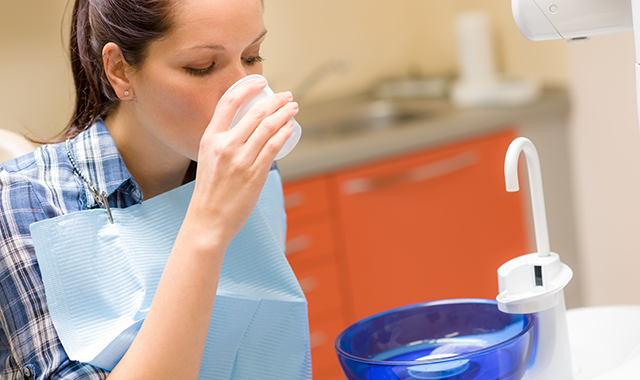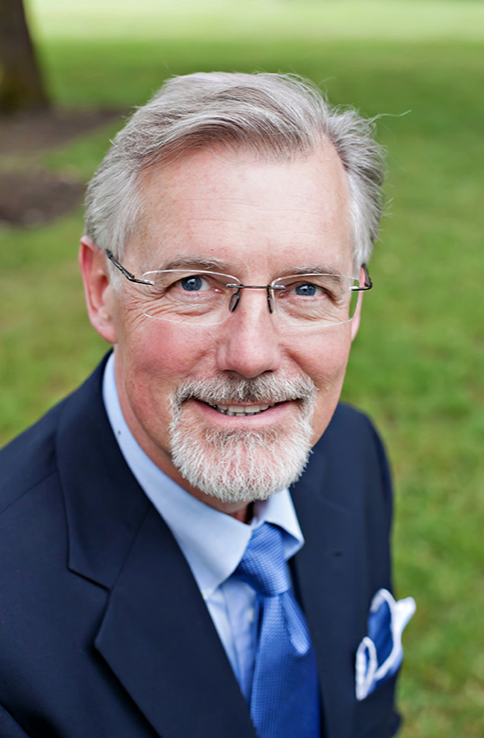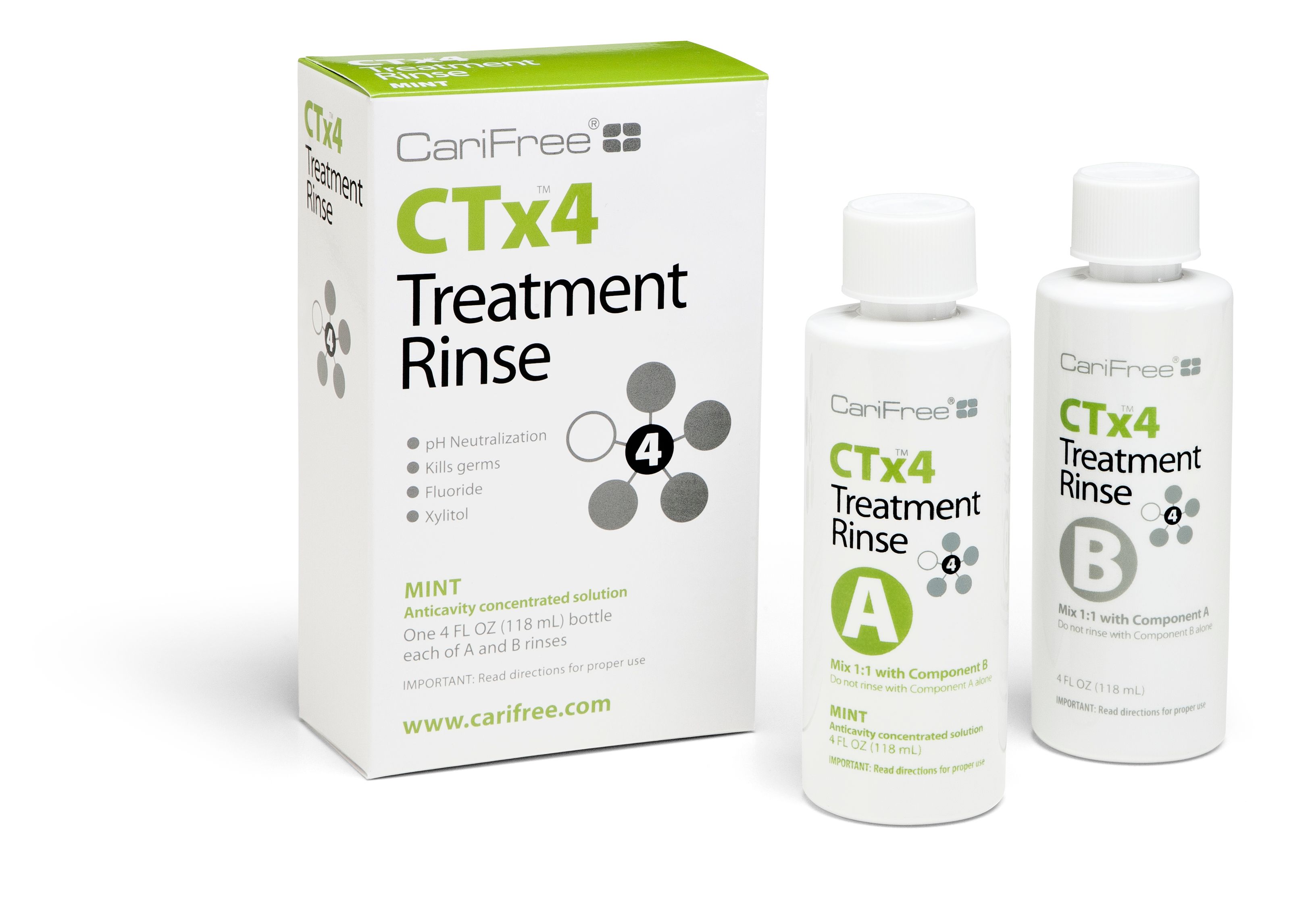Preprocedural rinses, extraoral HEPA vacuum systems could key dentistry’s fight against COVID-19
Longtime dental innovator Dr. Kim Kutsch expects practices re-opening after shutdown to implement methods to eliminate the spread of dangerous aerosols, as well as a whole new way of screening and receiving patients.

For someone who has stepped away from the everyday practice of dentistry after four decades, Dr. Kim Kutsch still seems to be about as involved in dentistry these days as anyone.
Dr. Kim Kutsch

The native of Oregon practiced dentistry for more than 40 years before retiring last summer, but still owns two practices in the state and has two sons who are also dentists. Kutsch was always involved in research and technology while practicing dentistry and was a pioneer in the use of lasers in dentistry and minimally invasive dentistry, as well as the science behind preventing caries. Along the way, he founded the company CariFree, which promotes Caries Risk Management, and has spent many years educating the industry on ways to prevent and treat the cause of caries as opposed to just treating the cavities.
One of the top products available from Oral BioTech, the CariFree company based in Albany, Oregon, is its CTx4 Treatment Rinse. It’s designed to treat the cariogenic plaque biofilm, reduce the overpopulation of cariogenic bacteria, and neutralize oral pH. The rinse is intended for use by patients diagnosed to be at-risk for caries, but now there are reasons to believe it may be a key step in treating dental patients in a post-COVID-19 world. While most dental practices were limited to emergency-only care in March and April in efforts to combat the novel coronavirus, some states are opening back up to elective care in May and June. Dental practices re-opened throughout the state of Oregon this week, including Kutsch’s Pinnacle Dental Associates in Albany.
Kutsch believes using a preprocedural rinse can help practices protect themselves against the dangerous aerosols that spread COVID-19. The CTx4 Treatment Rinse includes 0.2% sodium hypochlorite, a formula that has been proven in studies to inactivate coronaviruses on surfaces and in handwashing. There are other rinses available including chlorhexidine.
“The scientific evidence strongly supports using a preprocedural rinse,” says Kutsch, who was the founding president of the World Congress of Minimally Invasive Dentistry and the former president of the Academy of Laser Dentistry. “There are different types, but this should be our new standard of practice.”
The CariFree rinse is safe to use with patients of all ages and many practices have used it off-label as an effective treatment tool to fight periodontitis for years. But now, more than ever, practices should turn to a preprocedural rinse as a routine method in efforts to keep patients and staff safe from the spread of deadly viruses, Kutsch says.
CariFree's CTx4 Treatment Rinse. Photo: Oral BioTech

Killing virus populations intraorally is one step to take, and new systems to contain aerosols before they circulate in the operatory are another option to consider. Kutsch, who many years ago built HEPA vacuum systems for dental practices using Kreativ air abrasion systems, says he’s working with engineers to develop a new vacuum system for dental offices to prevent aerosols from patients’ mouths from being breathed in by clinicians. While many current HEPA vacuum systems are more than 99% effective against all particles as small as 0.3 microns, the aerosols spreading COVID-19 are more like 0.1 and 0.2 microns in size. With data from NASA helping determine the requirements, these soon-to-be-available vacuum systems should be something every practice considers going forward.
“I've been working with the same engineers and team for over 20 years and we're working around the clock,” he says, noting the goal is to produce the exact velocity needed to capture 100 percent of the aerosols coming out of the mouth of patients. “We’re working to develop a new product; basically a cleaner version. In order to capture all those small particles it takes a lot of calibration in the design of the device, and just the correct calibrated velocity at the filter.”
With a HEPA vacuum system already installed in the Albany dental practice, the regular use of the CTx4 Treatment Rinse, and guidelines from the ADA suggesting PPE for all staff and the pre-screening of patients, Kutsch and the team at Pinnacle Dental Associates are confident that they’re taking the necessary steps to resume elective treatments for their patients.
“The best way to manage these aerosols to protect ourselves is a preprocedural rinse, No. 1, and No. 2, having an extraoral HEPA vacuum at the source to capture all that aerosol so it’s not in your breathing space,” Kutsch told participants in a webinar April 30. “I feel very comfortable going back to clinical practice and I feel you should as well.”
While rescheduling all of the appointments postponed during the mandated shutdowns may create a headache for many practices, Kutsch doesn’t expect a mad rush of patients returning to practices as soon as the doors reopen. He’s aware that some people are not in a huge hurry to return to restaurants, crowded malls, and dental offices just because their states have announced that they can open up the doors.
Concerns about spending while the economy has been struggling coupled with the fear of COVID-19’s continued spread will surely keep some patients from racing back to the dental office for elective care. Taking patients’ temperatures before they enter the practice, asking a series of health screening questions, and having them wait in parking lots rather than waiting rooms will be the new norm at least for now as practices re-open.
“The level of anxiety is even greater than 9-11,” he says. “So you need to be patient with your patients.”
More changes
Dr. Susan Maples, who has a practice in Holt, Michigan, and who is the author of the book BlabberMouth! 77 Secrets Only Your Mouth Can Tell You To Live a Healthier, Happier, Sexier Live, invited Dental Products Report to participate in an Inspero Zoom Seminar last week titled, “COVID Conversations: Making the Best of This Challenge and Opportunity.”
The seminar addressed financial concerns for dental practices, dealing with anxiety during the shutdown when human connections are limited, staying in touch with patients even when unable to see them face-to-face, and changes to dental practices after they re-open at differing dates in different states across the country.
While the basics, like new screening protocols and increased PPE, will be prominent everywhere, Maples also shifts the focus to reducing the risk of transmission at the point of care.
To do that she plans to use the CariFree CTx4 rinse with all patients except very young children. She also expects more time between patient visits as she and her team members slow down to adequately clean and prep operatories with new PPE.
Maples, who lectures on total health dentistry, also expects practices to reduce or eliminate the use of polishing and ultrasonic power scaling, procedures that produce lots of aerosols. She’s hopeful more dentists begin to play even bigger roles in the overall health care system. She’s a big believer in helping patients understand the importance of eating healthy, of taking steps to prevent caries, and of the importance of understanding a person’s overall health in regards to their oral health and their standard of living.
Video: To watch a video with Dr. Susan Maples from CDS Midwinter Meeting 2020, click here.
Until this virus goes away, my team will eliminate ultrasonic scaling and polishing-which has little to no efficacy anyway. We will instead focus on hand instrumentation and ‘self-prophy’-helping people learn to adequately clean their own teeth every day,” says Maples. She adds that there's never been a better time for Total Health Dentistry, for putting together all the pieces. “Everyone is questioning the strength of their immune system. This is a great time to reiterate how dangerous lifestyle illnesses like diabetes, insulin resistance, obesity, and cardiovascular disease can be-and to help them turn the ship around.”
So while no one in the industry expects their dental practice to just slip right back into old normalcy in any type of a smooth fashion, there will soon be a new normal. New efforts aiming to help eradicate the risk of exposure to team members and patients alike. Welcome to our post-COVID-19 way of living.
Product Bites – November 10, 2023
November 10th 2023The weekly new products podcast from Dental Products Report is back. With a quick look at all of the newest dental product launches, Product Bites makes sure you don't miss the next innovation for your practice. This week's Product Bites podcast features new launches from Amann Girrbach, DMG, Pac-Dent, and ASI Dental Specialties. [4 Minutes]